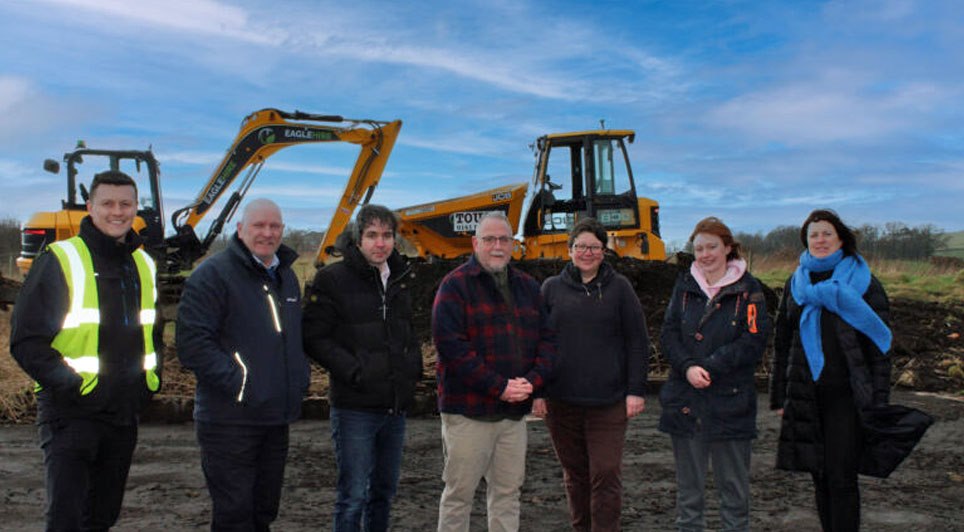'Evolution not revolution' will deliver an energy market fit for a low-carbon future, ScottishPower Renewables' Policy and Regulation Director, Kate Turner, has said.
Addressing the UK government's ongoing 'Review of Electricity Market Arrangements', which aims to ensure that the design of the electricity market is fit for the purpose of maintaining energy security and affordability for customers alongside the transition to Net-Zero – Turner said: "A low carbon-based energy market of the future will address some of the key issues we're seeing today – improving energy prices, energy security, flexibility – and puts a low-carbon green electricity market as the backbone of the energy system.
"While it sounds simple, this will be a mammoth undertaking and there are lots of differing views as to how we get there. One of the more controversial proposals is to move to Locational Marginal Pricing (LMP) – where wholesale electricity prices would vary between different network nodes or zones.
"While in some quarters, LMP is being presented as a silver bullet, a recent report (opens in a new window) from the University of Strathclyde (UoS) provides useful insights into the risks and challenges it would bring as part of wider GB market reform. Crucially, it highlights the need for careful consideration before any changes are made.'
Turner said that Locational Marginal Pricing (LMP) would mean moving away from the current uniform wholesale electricity price within GB.
She continued: "In addition to changing pricing, a transition of this magnitude would have knock on effects on many industry arrangements that incentivise investment in low carbon generation and security of supply via CfD and the Capacity Market.
"As the report highlights, with no 'off-the-shelf' solution for a new LMP market structure, the system would essentially need to be 'reinvented', which would require some of the most radical reforms for more than 20 years. So, we need much more quantitative analysis of how this will impact generator investment costs and confidence, as well as investment in transmission infrastructure, before making any decision regarding the suitability of LMP.
"As we know, the UK Government's ambition is to decarbonise the electricity system by 2035. The level of change that would be required to support a move to LMP – scoping, developing and testing as well as time and resources to investigate its impact and implementation before any decision is made – could put this ambition at risk.
"Current estimates suggest a timeline of between four and eight years to implement LMP, which could result in an investment hiatus. So, where does that leave us in terms of our thinking about LMP?
"For all future reform options, it's important to recognise the potential associated benefits as well as the risks and consider if there are less disruptive and cheaper alternate options available.
"LMP could theoretically deliver improved signals to generators about where to locate, which is contrary to the approach of the location of renewable generators being more dependent on the availability of natural resources.
"However, reform to the current Transmission Network of Use system charging methodology, improving current dispatch models to be more granular and developing flexibility markets could offer similar benefits, while improving cost reflectivity and predictability of charges at the same time without the same level of risk.
"So, there's lots to think about and we need to ensure alternative reform options are also considered alongside wider debates – not least around planning reform and energy security. The UoS report as well as a recent Frontier Economics study (opens in a new window)are useful in adding depth to the ongoing discussion and it is essential this continues.
"Mindful of the significant impact on the overall GB electricity market, low-carbon investment and consumers of any potential reforms, it is clear we require additional quantitative analysis to further inform the debate.
"When considering future reform options, GB industry should not be seduced by radical and untested ideas, but should focus more on incremental improvements. That means evolution not revolution."
Construction News
03/02/2023
'Evolution Not Revolution' Needed For Low-Carbon Future


30/04/2025
Plans for a £43 million education campus on the Isle of Mull have moved forward, Argyll and Bute Council has confirmed.
Following a decision earlier this month on the preferred location, the council will now progress with developing a detailed brief and concept design to inform the overall busines

30/04/2025
Global engineering and development consultancy Mott MacDonald has been appointed by Strathclyde Partnership for Transport (SPT), in collaboration with Glasgow City Council on behalf of the Glasgow City Region, to progress two key elements of the Case for Investment for the ambitious Clyde Metro proj

30/04/2025
Members of the Caithness Committee have unanimously agreed to adopt the Caithness Area Place Plan (APP).
The committee also committed to fully supporting and promoting the plan, ensuring it is considered within other relevant plans, strategies, developments, and funding opportunities impacting the

30/04/2025
Plans for a new business park at Oban Airport have advanced significantly with the announcement that Argyll and Bute Council has appointed hub North Scotland to oversee the project and Robertson Construction as the main contractor.
The Oban Airport project is a key component of the council's Tax In

30/04/2025
Contractors engaged in public sector projects across the UK will soon be subject to random and targeted spot checks on their payment practices.
This move by the UK government is designed to tackle the persistent issue of late payments throughout the construction supply chain.
According to advice

30/04/2025
Ten new affordable flats for social rent have been completed by The Highland Council in Carrbridge, addressing a significant demand for smaller properties in the area.
The development, named Struan Court after the former Struan Hotel which previously occupied the site, offers eight one-bedroom and

30/04/2025
The City of Edinburgh Council has held collaborative summit with key partner organisations to explore avenues for expanding the availability of accessible housing across the capital.
The Accessible Housing Summit, hosted by the council, brought together representatives from the third sector, housin

30/04/2025
A significant step forward has been taken in the development of a new £16 million flood prevention scheme designed to safeguard Bridge of Allan. Stirling Council has approved the procurement of a contract to design and construct the essential flood defences.
The planned infrastructure will offer pr

30/04/2025
A significant 64% of companies within Scotland's renewable energy supply chain are actively investing in skills, capabilities, and facilities to capitalise on the nation's burgeoning clean energy market over the next three to five years, a survey by Scottish Renewables has revealed.
The findings we

30/04/2025
A collaborative effort between McTaggart Construction and West Dunbartonshire Council is set to bring new affordable housing and a range of community benefits to the Willox Park area. The partnership will deliver a 17-unit, client design led, affordable housing development, procured through Scotland
 Scotland
Scotland UK
UK Ireland
Ireland London
London











